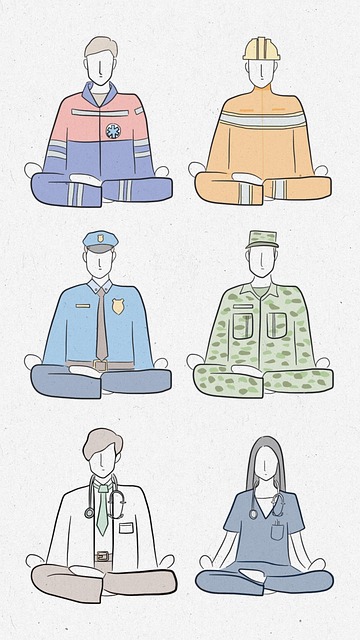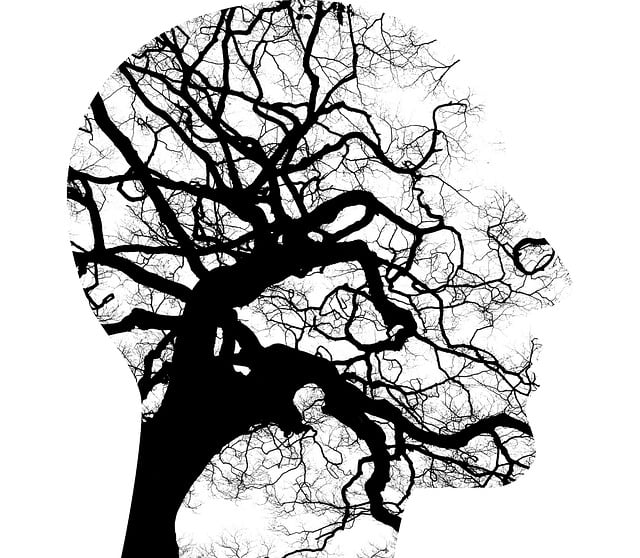Lone Tree Family Counseling Therapy promotes holistic mental wellness, focusing on resilience, emotional intelligence, and self-care. They offer evidence-based counseling, education, and training to individuals and professionals, advocating for stigma reduction and burnout prevention. Through tailored approaches like journaling and mindfulness practices, they empower clients to navigate challenges and foster a supportive environment for mental health across diverse communities.
Mental wellness is the cornerstone of overall well-being, influencing our daily lives and interactions. In this article, we explore strategies for promoting mental health, starting with understanding its foundational concepts. We delve into practical techniques to integrate into daily routines, emphasizing resilience-building. Furthermore, we highlight counseling therapy’s pivotal role in fostering mental fortitude. Finally, we introduce collaborative approaches, focusing on Lone Tree Family Counseling Therapy, as a supportive environment cultivates mental wellness for individuals and families alike.
- Understanding Mental Wellness: The Foundation of Well-being
- Strategies for Promoting Mental Health in Daily Life
- The Role of Counseling Therapy in Strengthening Mental Resilience
- Creating a Supportive Environment: A Collaborative Approach with Lone Tree Family Counseling Therapy
Understanding Mental Wellness: The Foundation of Well-being

Understanding mental wellness is the foundation of overall well-being. It involves recognizing and managing one’s emotional, psychological, and social state. Mental wellness isn’t merely the absence of mental illness; it’s about thriving and navigating life’s challenges with resilience. At Lone Tree Family Counseling Therapy, we believe that promoting mental wellness requires a holistic approach, addressing not just symptoms but also fostering healthy coping mechanisms, cultivating strong relationships, and nurturing self-care practices.
This involves encouraging emotional intelligence—the ability to understand and manage one’s emotions and empathize with others. It also means advocating for mental illness stigma reduction efforts, ensuring individuals feel supported rather than stigmatized when seeking help. Additionally, burnout prevention strategies for healthcare providers are crucial components of our approach, as recognizing and addressing professional stress is vital for maintaining a healthy work-life balance and providing compassionate care.
Strategies for Promoting Mental Health in Daily Life

Promoting mental wellness is an integral part of maintaining a balanced and fulfilling life. Simple yet effective strategies can be incorporated into daily routines to foster a healthier mind. One powerful tool is regular self-reflection, allowing individuals to process emotions, set personal goals, and cultivate gratitude. Practicing mindfulness, such as through meditation or nature walks, helps individuals stay grounded in the present moment, reducing stress and anxiety.
Additionally, seeking support from counseling services like Lone Tree Family Counseling Therapy can provide valuable guidance. These professionals offer evidence-based practices tailored to individual needs, helping one navigate challenges. Engaging in activities that bring joy, whether it’s exercise, creative pursuits, or connecting with loved ones, also contributes to mental wellness. Incorporating these strategies into daily life encourages resilience and overall well-being, ensuring a brighter and healthier future.
The Role of Counseling Therapy in Strengthening Mental Resilience

Counseling therapy plays a pivotal role in equipping individuals with the tools necessary to navigate life’s challenges and maintain strong mental resilience. Lone Tree Family Counseling Therapy, for instance, offers a safe and supportive environment where clients can explore their thoughts and emotions freely. Through various therapeutic modalities, counseling helps individuals develop coping strategies, enhance self-awareness, and build inner strength to overcome adversity.
Incorporating practices like Mental Wellness Journaling Exercise Guidance, these therapies encourage self-reflection and emotional intelligence. Moreover, Healthcare Provider Cultural Competency Training is essential in ensuring that counseling services are inclusive and sensitive to diverse cultural backgrounds, addressing the unique mental health needs of every individual. Additionally, Mental Health Education Programs Design can empower clients with knowledge about mental wellness, fostering a proactive approach to maintaining balance and well-being.
Creating a Supportive Environment: A Collaborative Approach with Lone Tree Family Counseling Therapy

Creating a supportive environment is a collaborative effort between various stakeholders, including healthcare providers, schools, communities, and families. Lone Tree Family Counseling Therapy understands this holistic approach to mental wellness promotion. By fostering open dialogue, breaking down barriers, and implementing strategies like Mindfulness Meditation, they aim to reduce the Mental Illness Stigma Reduction Efforts. This inclusive environment encourages individuals to seek help without fear of judgment or discrimination.
Through Healthcare Provider Cultural Competency Training, Lone Tree Family Counseling Therapy equips professionals with the skills to understand and address diverse cultural needs. This ensures that everyone, regardless of their background, has access to quality mental health services tailored to their unique experiences and perspectives. Such collaborative initiatives create a network of support, empowering individuals to prioritize and maintain their mental wellness.
Mental wellness is a cornerstone of overall well-being, and promoting it requires a multi-faceted approach. As discussed, understanding mental health, adopting daily strategies for resilience, and seeking professional counseling when needed are all vital components. Lone Tree Family Counseling Therapy emphasizes the power of collaboration in creating supportive environments, fostering strong mental health practices within communities. By combining personal initiatives with access to quality counseling resources, individuals can navigate life’s challenges more effectively, ultimately achieving greater mental wellness.














